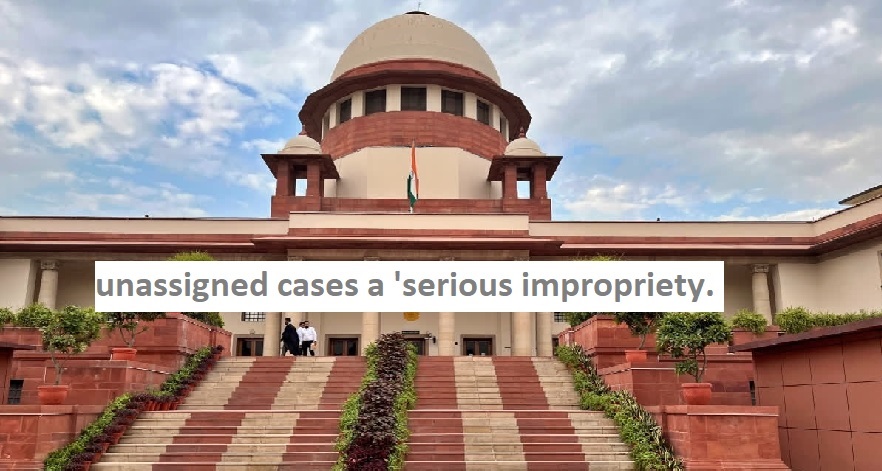


The Supreme Court has emphasized that judges must avoid handling cases not directly assigned by the Chief Justice, as it would undermine the designated roster's significance.
The highest court declared that addressing cases not allocated by the Chief Justice constitutes a grave impropriety.
The court strongly warned against permitting such sharp practices, stating that if judges engage in such behavior, the roster set by the Chief Justice loses its significance. Judges are expected to uphold discipline and should only handle cases specifically assigned by the Chief Justice. Taking on cases not expressly assigned is deemed a serious impropriety, as emphasized by a bench comprising Justice Abhay S. Ok and Justice Pankaj Mithal.
The Supreme Court made these strong remarks in response to an order issued by the Rajasthan High Court in a civil writ petition seeking the consolidation of specific First Information Reports (FIRs). The High Court had granted interim relief by instructing that no coercive action be taken against the accused individuals involved. The Supreme Court criticized the High Court judge for entertaining a civil petition related to the merging of FIRs, as this matter falls within the jurisdiction of the criminal court.
The Supreme Court expressed that even though a Civil Writ Petition was submitted, the judge should have converted it into a Criminal Writ Petition, which should have been presented exclusively before the roster Judge responsible for handling Criminal Writ Petitions
The Court also strongly criticized the accused individuals who had turned to the High Court with a civil petition after their request for interim relief was rejected by a different High Court judge in the Criminal Miscellaneous Petitions they had filed, seeking the quashing of the FIRs under Section 482 of the CrPC.
The appellant, on whose instigation some of the FIRs had been registered, claimed that the Civil Writ Petition requesting FIR consolidation was filed to bypass the roster Judge who had denied interim relief in the criminal petitions. The Court also observed that the complainants were not included in the Civil Writ Petitions. Furthermore, the Court took specific note of the fact that the same advocate represented the accused individuals (2nd to 4th Respondents before the Supreme Court) in both the civil and criminal cases.
The Court described the actions of the 2nd to 4th respondents as a 'gross abuse of the legal process' and a 'classic instance of forum shopping.'
"This represents a clear and severe misuse of the legal process. It is perplexing how a Civil Writ Petition for the consolidation of First Information Reports could even be entertained. The Chief Justice's roster distinctly outlines a separate allocation for Criminal Writ Petitions," the Court remarked.
The Supreme Court also stated that the behavior of the 2nd to 4th Respondents should be brought to the attention of the relevant Court handling petitions under Section 482 of the CrPC, which were filed by these respondents seeking the quashing of the FIRs against them.
TAGS: Appellant FIRs Civil Writ Petition Roster Judge Criminal Miscellaneous Petitions